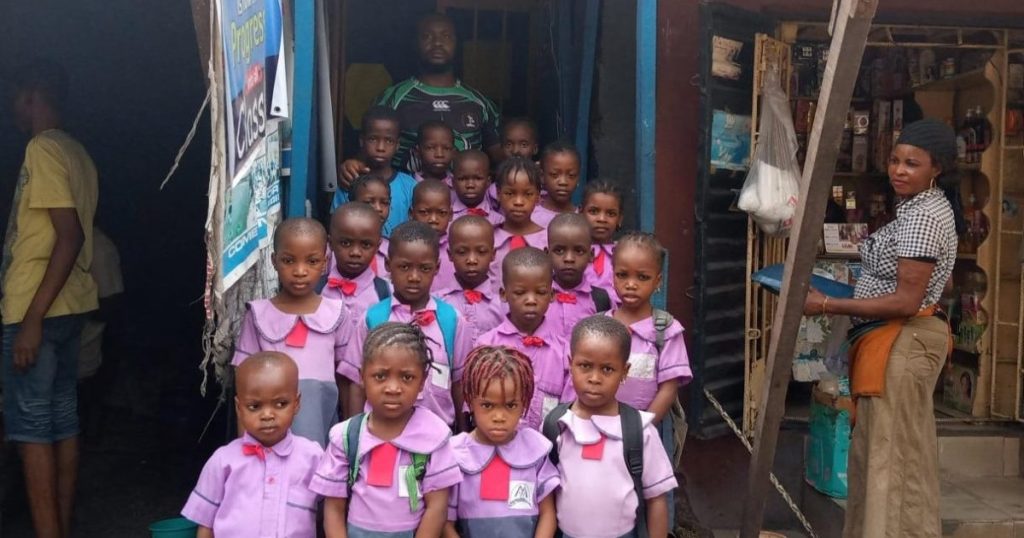Mujanatu Musa, a mother of three living in a one-roomed apartment in Ajegunle, a slum in Lagos, Nigeria, struggles to make ends meet on her meager income from hairdressing. Her children attend Morit International School, a privately run institution that allows parents to pay tuition with used plastic bottles. This initiative was started by the school’s founder, Patrick Mbamarah, who was inspired by the plastic waste crisis in the community and the financial struggles of parents. Despite the school’s innovative approach to tuition payment, logistical challenges and financial strains threaten its existence.
The Musa family is part of Nigeria’s population living in multidimensional poverty, with Musa relying on plastic waste to afford her children’s education. Morit International School was established in 2010 as a fee-paying institution but faced closure due to unpaid fees. Mbamarah introduced the “plastic-for-tuition” initiative as a way for parents to pay in recyclable materials instead of cash. While the initiative was initially successful, the school now struggles with storage and collection issues, impacting its ability to sustain operations.
The primary school’s enrollment has grown over the years, leading to an increase in plastic bottle payments. However, logistical challenges have made it difficult to manage the volume of plastic waste effectively. This has resulted in additional costs for the school, including hiring pick-up services for recycling. Moreover, the school’s proprietor, Mbamarah, is facing financial strain and fears the school may shut down due to mounting debts and operational challenges.
Despite efforts to seek assistance from non-profit organizations and government officials, Morit International School continues to face financial insecurity. The school’s staff, including teachers like Rhoda Adebayo, are overwhelmed by the increased workload and lack of resources. The potential closure of the school would have dire consequences for parents like Musa, who rely on it for their children’s education. The environmental benefits of the plastic-for-tuition initiative highlight the need for support to ensure the school’s sustainability and success.
Debo Adeniyi, a sustainability expert, commends the school’s initiative for addressing the environmental impact of plastic waste while providing educational opportunities for underprivileged children. He emphasizes the importance of finding solutions to the logistical challenges faced by the school, such as partnering with more recyclers. As the school struggles to stay afloat, the looming threat of closure underscores the urgent need for support from individuals and organizations to prevent further setbacks in the education of vulnerable children in the community.
For parents like Musa, the potential closure of Morit International School poses a significant risk to their children’s access to education. Without the school, these children could join the millions of out-of-school youth in Nigeria, exacerbating the education crisis in the country. Musa’s concern for her children’s future reflects the widespread challenges faced by families living in poverty, who rely on innovative solutions like the plastic-for-tuition model to secure their children’s education. As efforts continue to save the school from closure, the impact of its initiative on the community and environment remains a testament to the power of creativity and resilience in the face of adversity.













